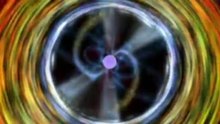 Podcast
Podcast
From Wikipedia, the free encyclopedia
"A podcast is a type of digital media consisting of an episodic series of audio radio, video, PDF, or ePub files subscribed to and downloaded through web syndication or streamed online to a computer or mobile device. The word is a neologism derived from "broadcast" and "pod" from the success of the iPod, as podcasts are often listened to on portable media players. In the context of Apple devices, the term "Podcasts" refers to the audio and video version of podcasts, whereas the textual version of podcasts are classified under the app known as Newsstand.
A list of all the audio or video files currently associated with a given series is maintained centrally on the distributor's server as a web feed, and the listener or viewer employs special client application software, known as a podcatcher, that can access this web feed, check it for updates, and download any new files in the series. This process can be automated so that new files are downloaded automatically, which may seem to the user as if the content is being broadcast or "pushed" to them. Files are stored locally on the user's computer or other device ready for offline use, giving simple and convenient access to the content.[1][2] Podcasting contrasts with webcasting (Internet streaming), which generally isn't designed for offline listening to user-selected content.
As discussed by Richard Berry, podcasting is both a converged medium bringing together audio, the web and portable media player, and a disruptive technology that has caused some in the radio business to reconsider some established practices and preconceptions about audiences, consumption, production and distribution.[3] This idea of disruptiveness is largely because no one person owns the technology; it is free to listen and create content, which departs from the traditional model of 'gate-kept' media and production tools.[3] It is very much a horizontal media form: producers are consumers and consumers become producers and engage in conversations with each other."[3]
| Find more about WikiProject Libraries at Wikipedia's sister projects | |
| Definitions and translations from Wiktionary | |
| Media from Commons | |
| Learning resources from Wikiversity | |
| News stories from Wikinews | |
| Quotations from Wikiquote | |
| Source texts from Wikisource | |
| Textbooks from Wikibooks | |
| Travel information from Wikivoyage | |
Resources for Librarians: [edit]
- WikiProject Librarians is a project for librarians to identify themselves and various collaborative projects to work on.
- Introduction to Wikipedia culture for librarians tries to explain the madness to those coming from LIS.
- The category page for Library and information science lists articles that have been identified as dealing with LIS topics. All of these articles could benefit from review, and there are likely hundreds of other articles that need to be tagged with this category.
- There's also sure to be something to do over at the Fact and Reference Check Project.
- Other suggestions for things librarians can do:
- Check your local cataloging. Often, Wikipedia is listed on subject or resource guides, or sometimes even fully cataloged. Unfortunately, due to the dynamic nature of this resource, these records are very often outdated or wrong. It is probably best not to list a specific article in the record, but rather provide a basic description from Wikipedia:About. Note particularly that Wikipedia is not published by the Free Software Foundation as stated in some OCLC records. Instead, as of Dec. 2008, Wikipedia is published by The Wikimedia Foundation, San Francisco, California. The official title is "Wikipedia: The Free Encyclopedia," and the general link to the English-language Wikipedia is http://en.wikipedia.org/; a general link to the portal page is http://wikipedia.org.
- Talk to your patrons. Wikipedia provides one of the best resources available for teaching information literacy -- implicit in the design of the site is the idea that you need to check everything you find there, which can be expanded to a discussion of verifying all information.
- Use and advocate for Wikipedia as a "gateway source." Wikipedia's extensive references, external and internal links can be used as a great way to get a basic idea of a topic and find out more about it. Just be sure to also use outside sources!